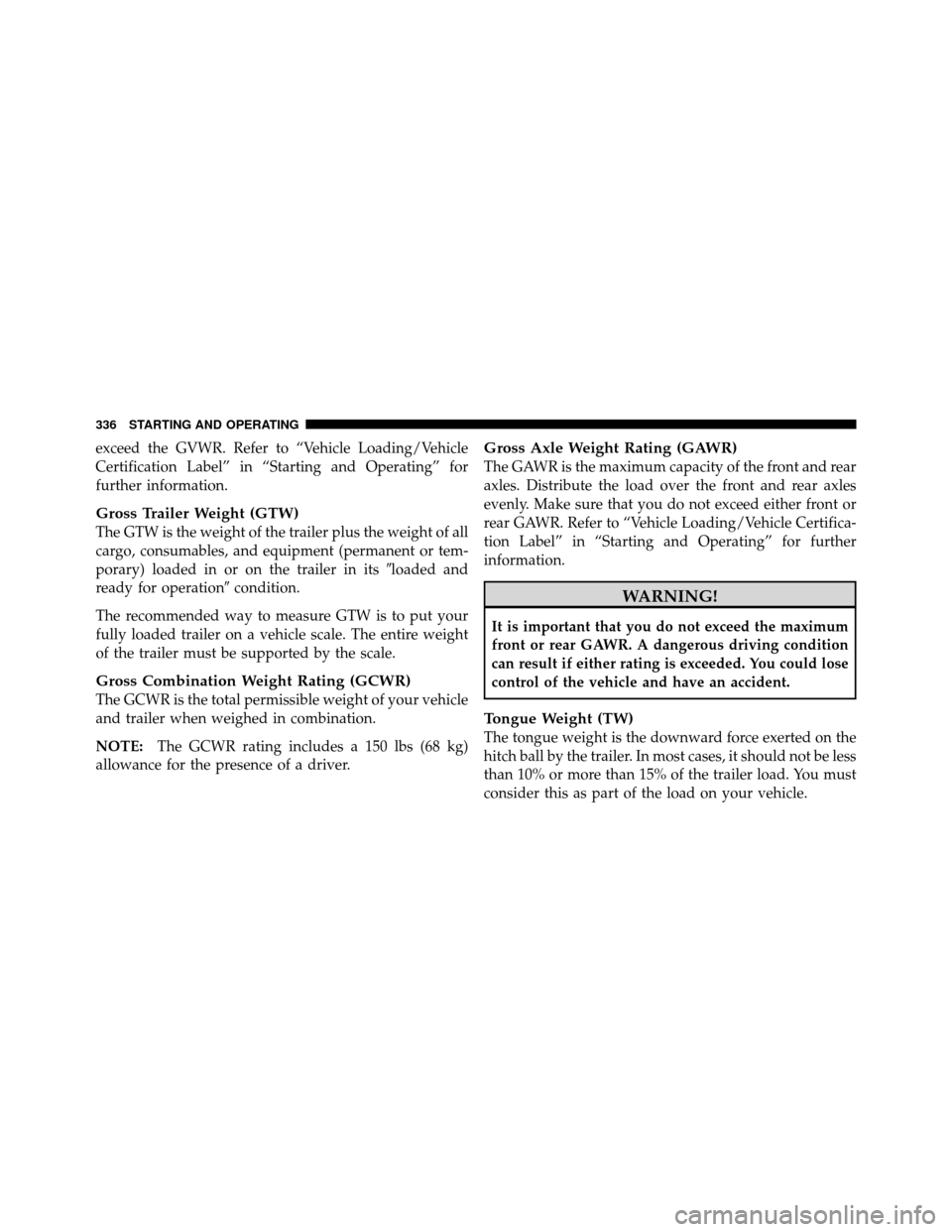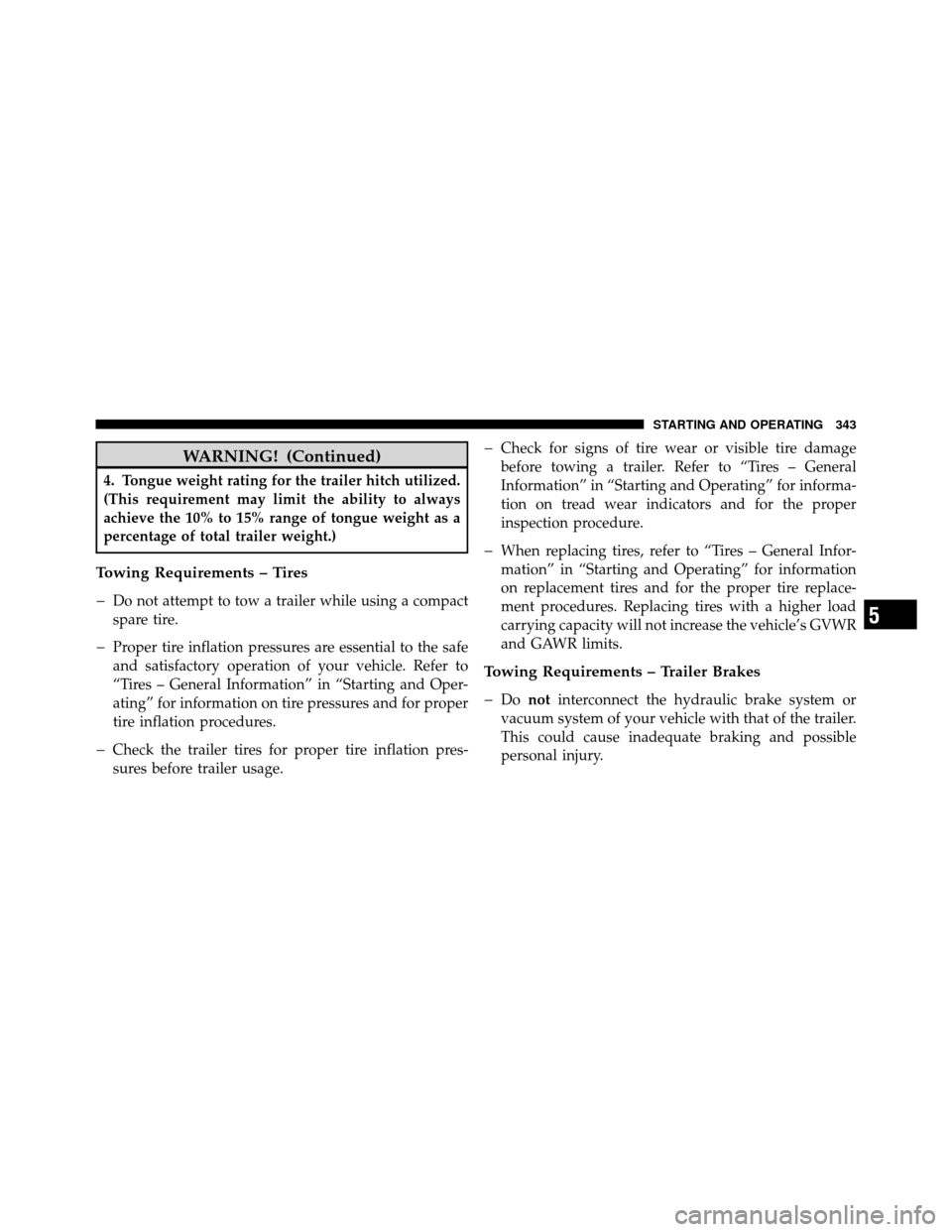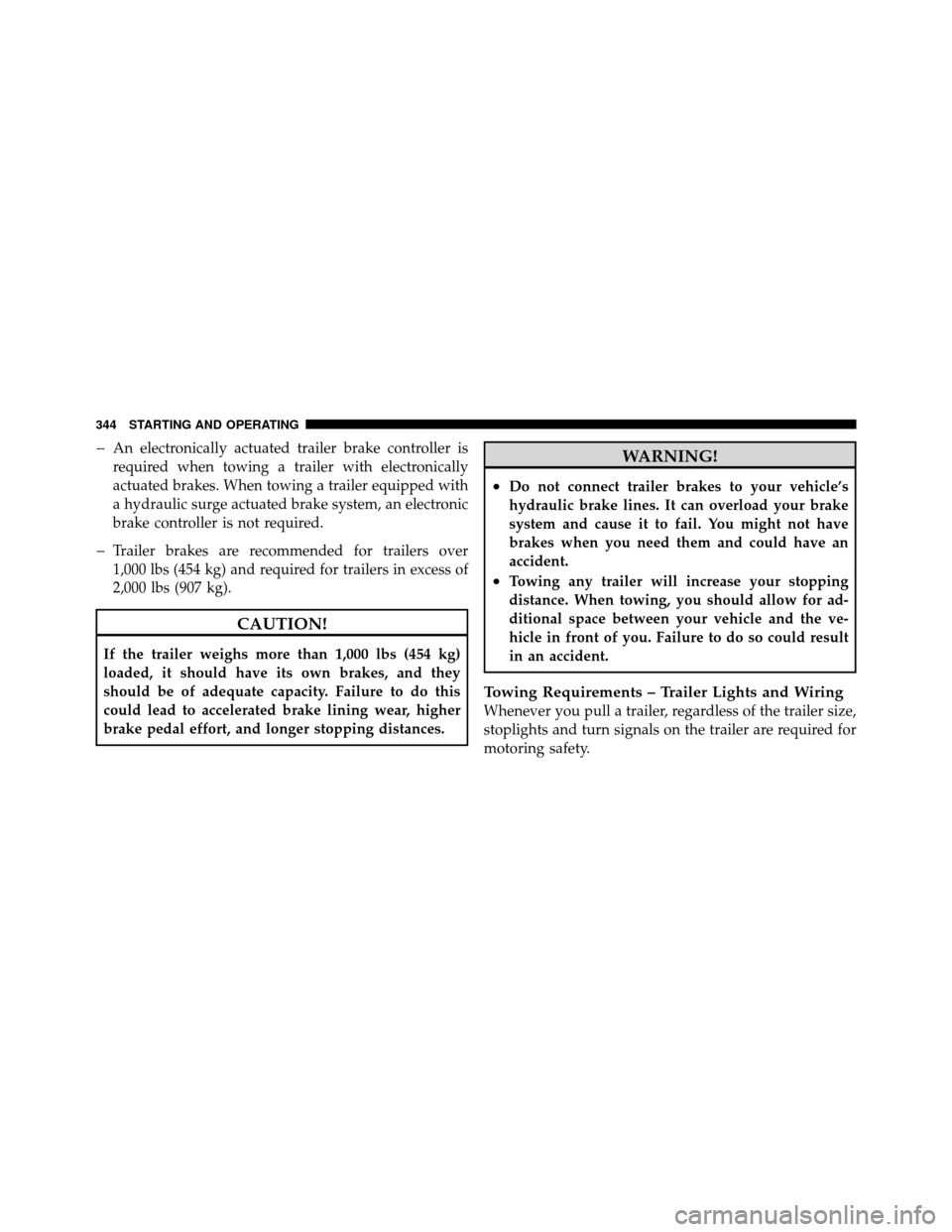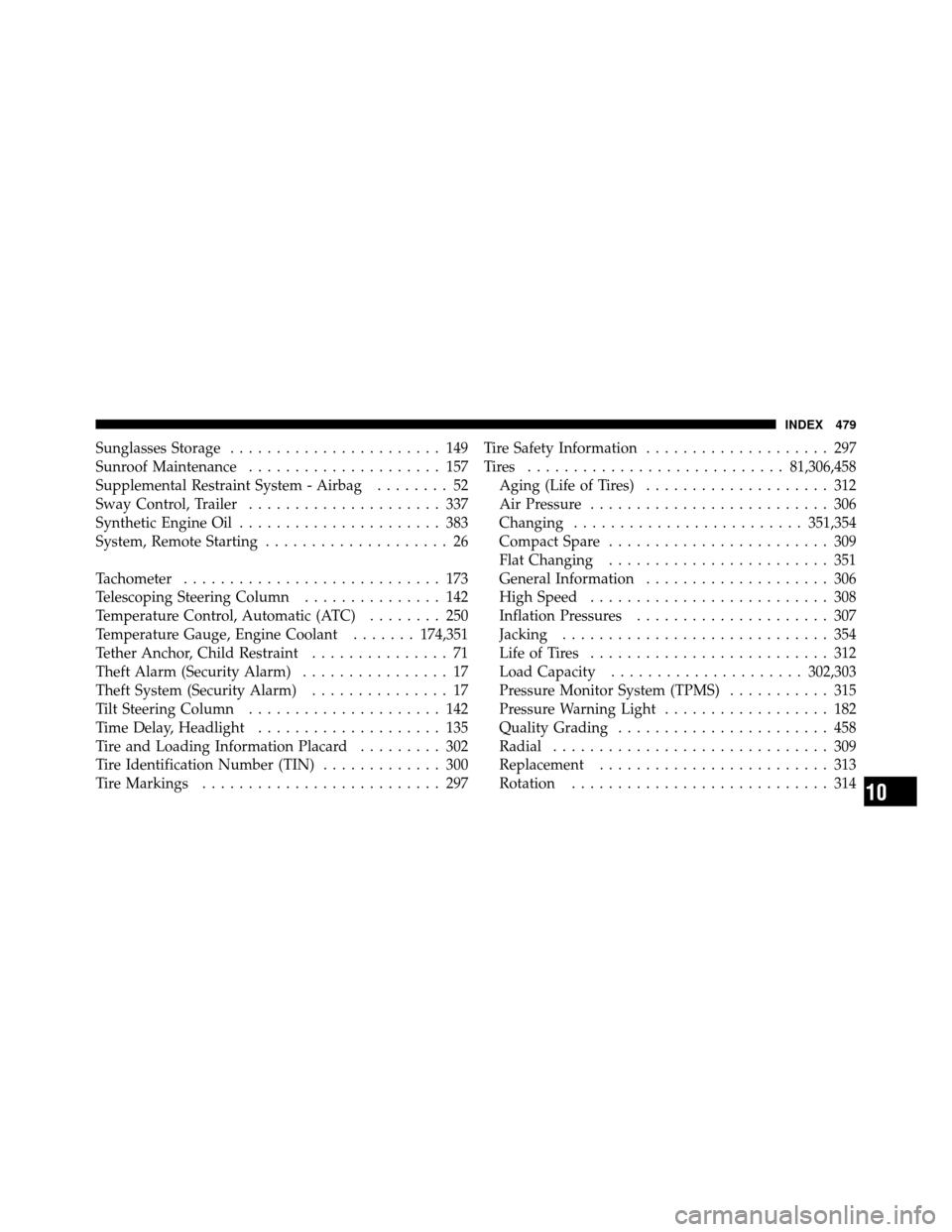Page 337 of 484

exceed the GVWR. Refer to “Vehicle Loading/Vehicle
Certification Label” in “Starting and Operating” for
further information.
Gross Trailer Weight (GTW)
The GTW is the weight of the trailer plus the weight of all
cargo, consumables, and equipment (permanent or tem-
porary) loaded in or on the trailer in its�loaded and
ready for operation� condition.
The recommended way to measure GTW is to put your
fully loaded trailer on a vehicle scale. The entire weight
of the trailer must be supported by the scale.
Gross Combination Weight Rating (GCWR)
The GCWR is the total permissible weight of your vehicle
and trailer when weighed in combination.
NOTE: The GCWR rating includes a 150 lbs (68 kg)
allowance for the presence of a driver.
Gross Axle Weight Rating (GAWR)
The GAWR is the maximum capacity of the front and rear
axles. Distribute the load over the front and rear axles
evenly. Make sure that you do not exceed either front or
rear GAWR. Refer to “Vehicle Loading/Vehicle Certifica-
tion Label” in “Starting and Operating” for further
information.
WARNING!
It is important that you do not exceed the maximum
front or rear GAWR. A dangerous driving condition
can result if either rating is exceeded. You could lose
control of the vehicle and have an accident.
Tongue Weight (TW)
The tongue weight is the downward force exerted on the
hitch ball by the trailer. In most cases, it should not be less
than 10% or more than 15% of the trailer load. You must
consider this as part of the load on your vehicle.
336 STARTING AND OPERATING
Page 344 of 484

WARNING! (Continued)
4. Tongue weight rating for the trailer hitch utilized.
(This requirement may limit the ability to always
achieve the 10% to 15% range of tongue weight as a
percentage of total trailer weight.)
Towing Requirements – Tires
�
Do not attempt to tow a trailer while using a compact
spare tire.
�Proper tire inflation pressures are essential to the safe
and satisfactory operation of your vehicle. Refer to
“Tires – General Information” in “Starting and Oper-
ating” for information on tire pressures and for proper
tire inflation procedures.
�Check the trailer tires for proper tire inflation pres-
sures before trailer usage.
�Check for signs of tire wear or visible tire damage
before towing a trailer. Refer to “Tires – General
Information” in “Starting and Operating” for informa-
tion on tread wear indicators and for the proper
inspection procedure.
�When replacing tires, refer to “Tires – General Infor-
mation” in “Starting and Operating” for information
on replacement tires and for the proper tire replace-
ment procedures. Replacing tires with a higher load
carrying capacity will not increase the vehicle’s GVWR
and GAWR limits.
Towing Requirements – Trailer Brakes
�
Donot interconnect the hydraulic brake system or
vacuum system of your vehicle with that of the trailer.
This could cause inadequate braking and possible
personal injury.
5
STARTING AND OPERATING 343
Page 345 of 484

�An electronically actuated trailer brake controller is
required when towing a trailer with electronically
actuated brakes. When towing a trailer equipped with
a hydraulic surge actuated brake system, an electronic
brake controller is not required.
�Trailer brakes are recommended for trailers over
1,000 lbs (454 kg) and required for trailers in excess of
2,000 lbs (907 kg).
CAUTION!
If the trailer weighs more than 1,000 lbs (454 kg)
loaded, it should have its own brakes, and they
should be of adequate capacity. Failure to do this
could lead to accelerated brake lining wear, higher
brake pedal effort, and longer stopping distances.
WARNING!
•Do not connect trailer brakes to your vehicle’s
hydraulic brake lines. It can overload your brake
system and cause it to fail. You might not have
brakes when you need them and could have an
accident.
•Towing any trailer will increase your stopping
distance. When towing, you should allow for ad-
ditional space between your vehicle and the ve-
hicle in front of you. Failure to do so could result
in an accident.
Towing Requirements – Trailer Lights and Wiring
Whenever you pull a trailer, regardless of the trailer size,
stoplights and turn signals on the trailer are required for
motoring safety.
344 STARTING AND OPERATING
Page 480 of 484

Sunglasses Storage....................... 149
Sunroof Maintenance ..................... 157
Supplemental Restraint System - Airbag ........ 52
Sway Control, Trailer ..................... 337
Synthetic Engine Oil ...................... 383
System, Remote Starting .................... 26
Tachometer ............................ 173
Telescoping Steering Column ............... 142
Temperature Control, Automatic (ATC) ........ 250
Temperature Gauge, Engine Coolant .......174,351
Tether Anchor, Child Restraint ............... 71
Theft Alarm (Security Alarm) ................ 17
Theft System (Security Alarm) ............... 17
Tilt Steering Column ..................... 142
Time Delay, Headlight .................... 135
Tire and Loading Information Placard ......... 302
Tire Identification Number (TIN) ............. 300
Tire Markings .......................... 297 Tire Safety Information
.................... 297
Tires ............................ 81,306,458
Aging (Life of Tires) .................... 312
Air Pressure .......................... 306
Changing ......................... 351,354
Compact Spare ........................ 309
Flat Changing ........................ 351
General Information .................... 306
High Speed .......................... 308
Inflation Pressures ..................... 307
Jacking ............................. 354
Life of Tires .......................... 312
Load Capacity ..................... 302,303
Pressure Monitor System (TPMS) ........... 315
Pressure Warning Light .................. 182
Quality Grading ....................... 458
Radial .............................. 309
Replacement ......................... 313
Rotation ............................ 314
10
INDEX 479